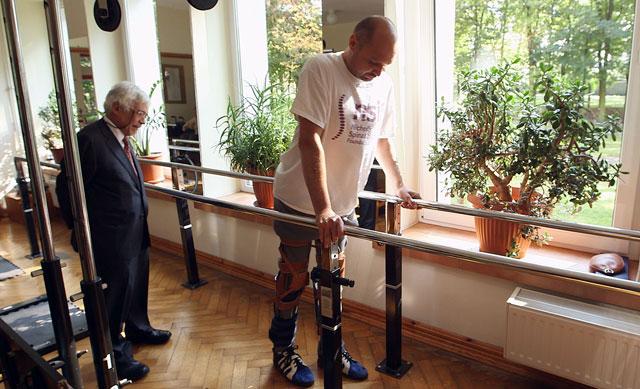You are here
Failing sense of smell strong predictor of death
By AFP - Oct 02,2014 - Last updated at Oct 02,2014
WASHINGTON — A declining sense of smell in older people is a strong predictor of death within just five years, according to research published Wednesday.
Thirty-nine per cent of study subjects who failed a simple smelling test died during that period, compared to 19 per cent of those with moderate smell loss and just 10 per cent of those with a healthy sense of smell, the journal PLOS ONE reported.
The hazards of smell loss were “strikingly robust”, according to researchers, who said that olfactory dysfunction was better at predicting mortality than a diagnosis of heart failure, cancer or lung disease.
Only severe liver damage was a more powerful predictor of death, they said.
“We think loss of the sense of smell is like the canary in the coal mine,” said the study’s lead author Jayant Pinto, an associate professor of surgery at the University of Chicago.
“It doesn’t directly cause death, but it’s a harbinger, an early warning that something has gone badly wrong, that damage has been done.
“Our findings could provide a useful clinical test, a quick and inexpensive way to identify patients most at risk.”
Precisely how sense of smell loss relates to mortality is unclear.
“Obviously, people don’t die just because their olfactory system is damaged,” said Martha McClintock, the study’s senior author.
Pinto added: “Of all human senses, smell is the most undervalued and underappreciated — until it’s gone.”
The study was part of the National Social Life, Health and Ageing Project (NSHAP), the first in-home study of social relationships and health in a large, nationally representative sample of men and women ages 57 to 85.
In the first wave of the NSHAP, conducted in 2005-2006, professional survey teams from the National Opinion Research Centre at the University of Chicago used a well-validated test for a field survey of 3,005 participants.
It measured their ability to identify five distinct common odours.
In the second wave, during 2010-2011, the survey team confirmed which participants were still alive. During that five-year gap, 430 (12.5 per cent) of the original 3,005 study subjects had died and 2,565 were still alive.
Related Articles
Older adults with a poor sense of smell may die sooner than their counterparts who have keen olfactory abilities, a US study suggests.
A Polish man who was paralysed from the chest down in a knife attack can now walk with the aid of a frame after receiving pioneering transplant treatment using cells from his nose.
WASHINGTON — City parks and green spaces help counter heat, boost biodiversity, and instil a sense of calm in the urban jungle.They also hel

















